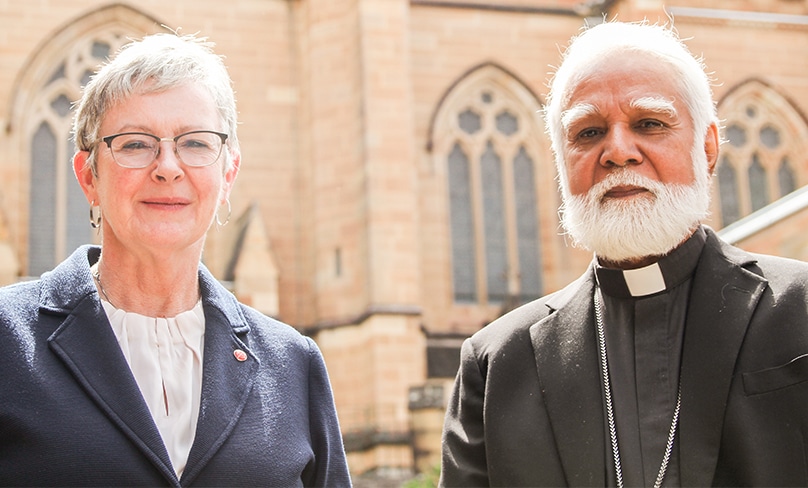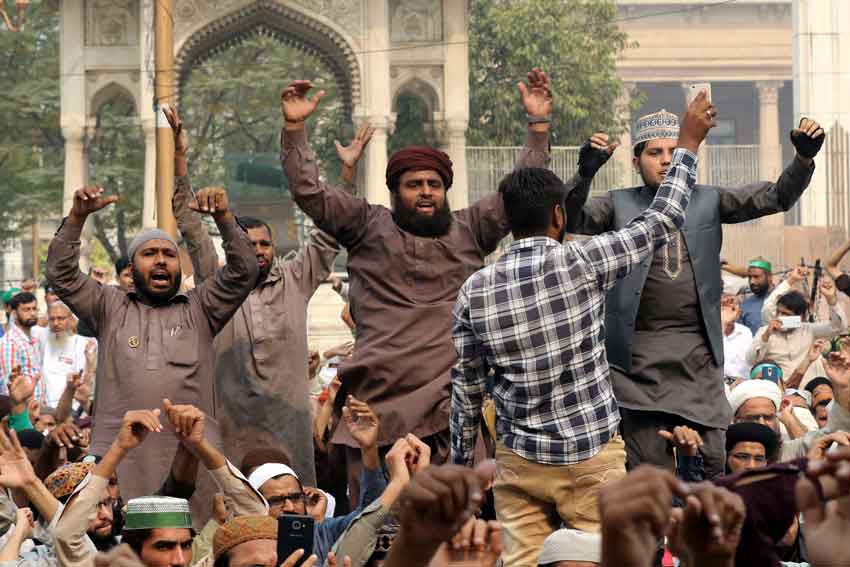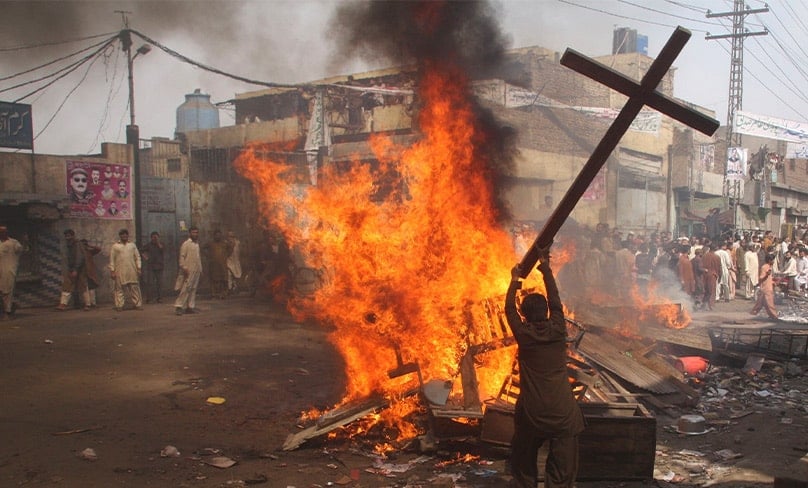
Pakistani Minorities Minister Shahbaz Bhatti, a Catholic and the only Christian in cabinet, was leaving his mother’s house in a suburb of Islamabad when his car was surrounded by gunmen and riddled with bullets.
He was a longstanding critic of Pakistan’s blasphemy law. In the months leading up to his assassination on 2 March 2011 he received death threats for his desire to see the “Black Law” repealed.
Mr Bhatti was also a key advocate for Asia Bibi, who was sentenced to death in November 2010 on bogus charges of blasphemy and survived vigilante reprisals to eventually have her charges dismissed.
Cardinal Joseph Coutts, the recently-retired Archbishop of Karachi, was a friend and admirer of Mr Bhatti before his assassination.
He draws a distinction between the blasphemy law itself, and the violence committed against minorities under the pretense of blasphemy.
“Not all Muslims are like that, and even there are Muslims who are suffering from this law,” Cardinal Coutts told The Catholic Weekly.
“Nobody up to now has been executed by the law for blasphemy, but there have been a number of lynchings.”
“Not because of the law as it stands, but because of its misuse.
“Nobody up to now has been executed by the law for blasphemy, but there have been a number of lynchings.”
Vocal fundamentalist clergy use the loudspeakers of their mosques to broadcast accusations of blasphemy against Islam and incite mob violence, with terrible results, he said.
“That’s fanaticism. Not the common man.”
Cardinal Coutts is visiting Australia with Regina Lynch, the international head of projects for Aid to the Church in Need.
His Eminence and Mrs Lynch will join Chaldean Archbishop Amel Nona as guest speakers at Aid to the Church in Need’s first Night of the Witnesses in Canberra on 23 November, to memorialise the Christian victims of religious persecution.

It is also an occasion to reaffirm the importance of solidarity, filial love and service in the face of oppression.
Indeed in Pakistan, the Christian minority of two per cent or less are well-respected for their dedication to the community, despite being persecuted by a radical fringe.
The works of the Catholic Church are particularly well regarded.
Many high-profile Muslim figures in Pakistan’s public life received their education at Catholic schools – including former Prime Minister Benazir Bhutto.
“They say we have good values, we’re honest people, we don’t fight, we don’t kill people, we are peaceful, and you have good discipline,” His Eminence said.
“Especially at the convent schools where the girls study, they say, ‘We know our girls will be safe with your sisters.’
“Some of the bishops, the Catholic bishops, said to me: ‘Before he came, the ordinary Muslim had really no idea who the Christians were.’”
“So where does the difficulty arise from? You will also have an Imam preaching and saying ‘Don’t send your children to those Christian schools, they will convert your children!’
“Then you’ll have a good Muslim saying, ‘No that’s nonsense! I want my children in Saint So-and-So’s school.’”
Regina Lynch has served with Aid to the Church in Need for over four decades, and co-ordinates more than $150 million annually in international projects.
She was a member of the 2021 Papal delegation to Iraq with Pope Francis and said the Holy Father’s approach to dialogue is bearing fruit in the Muslim world.
“Some of the bishops, the Catholic bishops, said to me: ‘Before he came, the ordinary Muslim had really no idea who the Christians were.’ They didn’t believe Christians were Iraqis,” Mrs Lynch said.
“Many thought they’d come with the Crusaders or something, and didn’t realise they’d been there for 2000 years. It really helped the ordinary Iraqi put the Christians into a proper context.”

Mrs Lynch said that Pope Francis’ meeting with Muslim leaders at Ur, the “cradle of civilisation” in southern Iraq, had shifted opinions of Christianity for the better when she visited a year later.
“And that was thanks to that movement of his, reaching out. He’s very much respected now by the educated Muslim leaders in the world. They see him as genuinely looking for dialogue.”
Cardinal Coutts also praised Pope Francis’ Document on Human Fraternity, jointly-signed with Sheikh Ahmed el-Tayeb, Grand Imam of Al-Azhar in Cairo.
“He has a high standing in the Muslim world – well chosen really,” Cardinal Coutts said.
Yet while dialogue is important both Cardinal Coutts and Mrs Lynch identify its limits where religious violence is concerned.
His Eminence cited the example of the ancient Bamiyan Statues in Afghanistan, which were dynamited by the Taliban in 2001 after having been preserved by Muslims for centuries.
“In Pakistan you find a little bit of everything. You rarely see women walking around the streets veiled …”
“It’s not just plain ignorance. The ignorance gap is filled with a certain extremist form of religion,” he said, pointing especially to the influence of Saudi Arabia’s hardline Wahhabist theology.
“In Pakistan you find a little bit of everything. You rarely see women walking around the streets veiled, but it’s coming in slowly.
“Mainly because we have thousands of workers in Saudi Arabia who come back with these ideas, or some of our imams who go there on free scholarships and come back.”
Mrs Lynch said that alongside radicalisation, authoritarian governments continue to be one of the major causes of religious persecution and a barrier to dialogue.
“It’s more than just faith. There’s a political reason often behind the lack of religious freedom.
“The Church can do so much, but it meets its limits with certain governments, totalitarian governments and so on.”
